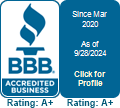
Retiring with Debt? Strategies for a Secure Financial Future
In a bygone era of American mythology, families would take out a 30-year mortgage, labor for thirty years at one establishment to pay it off, and then sail into retirement debt-free.
The fact of the world today is that older Americans are becoming more indebted, and the fantasy of retiring debt-free is receding. According to a 2023 study by the Employee Benefit Research Institute (EBRI), nearly 60% of retirees still manage some form of debt. The Federal Reserve reports that the average debt for households headed by someone 65 or older is around $31,000. These statistics highlight the importance of developing effective strategies to manage and reduce debt during retirement, ensuring financial stability and peace of mind.
Which Debt Types Are Common Among Seniors?
Adults 65 and older have a wide variety of debt, including:
- Credit Card Debt: In 2022, 40% of retirees reported having this debt. When you do not have a steady job to assist you in paying your bills, credit card debt becomes even more concerning. Credit card debt is almost always pricey.
- Mortgage Debt: Many seniors are still making mortgage payments into retirement due to costly renovation projects or because they cannot pay off their other debts during their working years. Though this falls under the category of good debt, some experts recommend paying off a mortgage before retiring.
- Medical Debt: Retirement expenses may exceed the budget due to the necessity for more frequent medical care. Medicare offers an option for individuals 65 years of age and above, but it is not comprehensive. “Out-of-pocket expenses, co-payments, deductibles, and prescription medications can accumulate, resulting in medical debt,” according to Beckett.
- Student Loans: Many retirees still have outstanding student loan debt, whether for themselves, their kids, or their grandkids. This persisting debt causes retirees to face financial challenges.
Strategies to Pay Off Debt
1. Rein In Spending
Focus on creating a budget. Examining methods to reduce costs should be done even for necessary expenses like groceries, utilities, and insurance policies.
Regarding the extras, even if you eat at the blue light specials, you may save a lot of money by reducing the amount of takeout and restaurant trips. Redirect the money saved towards paying off your debt. Small changes can add up over time and make a difference in your debt repayment journey.
2. Run The Figures.
Compile an exhaustive inventory of all your loans, including their interest rates and balances. Then select either the debt snowball or avalanche method to pay off debt:
The snowball method: You prioritize paying off your smallest debt first and make the bare minimum payments on the rest. Once you pay off the smallest debt, you move on to the next until you pay off all your debts.
The avalanche method: Focuses on paying off the debt with the highest interest rate first and then moving on to the next highest while making minimum payments on your other obligations.
Both methods have merits, so whichever option you select, ensure your monthly debt payment and other basic requirements fit your budget.
3. Consider Debt Consolidation
Consolidating your debts can lower your interest rates and streamline the repayment procedure. It involves combining many loans into one loan with a single monthly payment. The options include a personal loan, a balance transfer credit card, or a home equity loan. Compare interest rates and fees to ensure this strategy will save you money in the long run.
4. Downsize Or Relocate
Downsizing can lower some otherwise high bills, such as utilities, house insurance, property taxes, and mortgages. It can also lessen physical wear and tear (snow removal, grass care) and stress from unforeseen homeowner bills.
However, consider any rental or condo HOA fees at your new home. Make sure purchasing or selling a home makes sense financially in addition to the uplifting effects of decluttering.
Relocating can also be a win-win situation as retirees get to move to a place of their choice and can live in an area where homes are more reasonably priced and the cost of living is cheaper. In addition, you may get to experience better weather.
5. Boost Your Income
Another great strategy to boost your income and pay off debt is to look into part-time employment alternatives. Additional money from side employment, freelancing, or part-time work in an area you enjoy can enhance your capacity to pay off debt. However, keep your general well-being in mind and select something that satisfies your passions without interfering with the leisure and fun that retirement is supposed to provide.
6. Consider Utilizing A Reverse Mortgage.
For homeowners 62 years of age and over, a reverse mortgage is a financial tool that lets them turn a portion of their home value into tax-free income. Reverse mortgages have no monthly payback requirements, in contrast to conventional mortgages. The loan is settled when the homeowner moves out, sells their house, or dies.
In retirement, this can offer a reliable source of income to settle debt, support living expenses, or meet other financial requirements.
However, because reverse mortgage loans have regulations and guidelines, you must weigh the advantages and disadvantages thoroughly before taking this loan to pay off your debt in retirement.
7. Access Retirement Funds
You can withdraw money from your tax-deferred accounts without incurring penalties if you are over 59½, but the amount you take out will be subject to taxation. It might be the quickest and most straightforward approach to paying off high-interest credit card debt. It would make sense to utilize it to clear the slate in light of the recent surge in retirement savings.
Paying off debt with your retirement funds can also deplete your retirement resources and eliminate the chance of earning interest on those investments in the future.
However, if you’re still receiving money from a job, you may be able to top off your account partially.
8. Leverage Social Security Strategically
Your savings, overall health, and marital status are part of the Social Security equation, but debt can sometimes interfere with your ambitions. If you take out Social Security early, you may be able to acquire the necessary money to pay off your debt.
However, if you wait to file for Social Security, the amount will increase over the years. The benefits will rise 8% yearly until retirement age and continue until 70. So, it will be better to pay off your debt until you have more cash available. Get professional advice regarding the optimal choice for you.
Seek Professional Advice
If your debt situation is hard to handle, contact our professionals for a personalized strategy to manage your debt, optimize your investments, and ensure you are on the right path to financial security.


